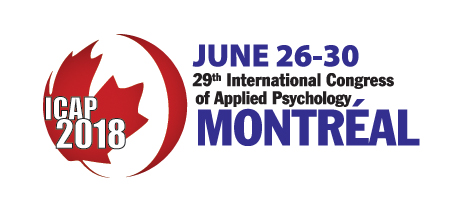2018 Pre-Congress Workshop 2: Therapy with People Who Are Suicidal: Critical Issues
Jun 24, 2018 09:00AM to Jun 24, 2018 04:30PM
Palais des congrès de Montréal

| Presented by: | Brigitte Lavoie |
| Sponsored by: | Counselling Psychology |
| Continuing Education Credits: | 6 |
| Notes: |
- |
| Cost: |
CPA/IAAP Members: $345.00 + GST + QST Non-Members: $425.00 + GST + QST
Click here to download the country list |
| Duration: | Full Day (9:00 – 16:30) |
| Target Audience: | Clinicians and graduate students |
| Skill/Difficulty Level: | Intermediate/advanced level |
|
Workshop Description: Most people who have died by suicide had consulted a health professional in the months preceding their death and the majority of people who die by suicide suffer from a mental health problem. Considering the characteristics of the clients they see, psychologists must be equipped to help people who are vulnerable to suicide, even if, as clinicians, they do not choose to specialize in the field of suicide prevention. Quebec’s Ministry of Health and Social Services recommends the use of Solution-focused brief therapy in this work. This model allows psychologists to approach recurrence in new ways by emphasizing the future, reasons to live, resilience, and the competencies of clients. This can be a challenge for clinicians who have traditionally been trained to place emphasis on the past and on symptoms. Furthermore, historically, suicide has been viewed as a crisis, which can make it difficult to see how intervention can (and should) be done throughout the therapeutic process with the people who are most vulnerable to suicide. This workshop offers concrete strategies and a model of evaluation that allows clinicians to build hope with clients for the long term. Participants will also identify practices that are contraindicated for people who are suicidal, as well as alternatives that are more effective. They will leave the workshop feeling more comfortable in their work with clients who are making repeated attempts to live. |
|
|
Learning Outcomes:
|
|
